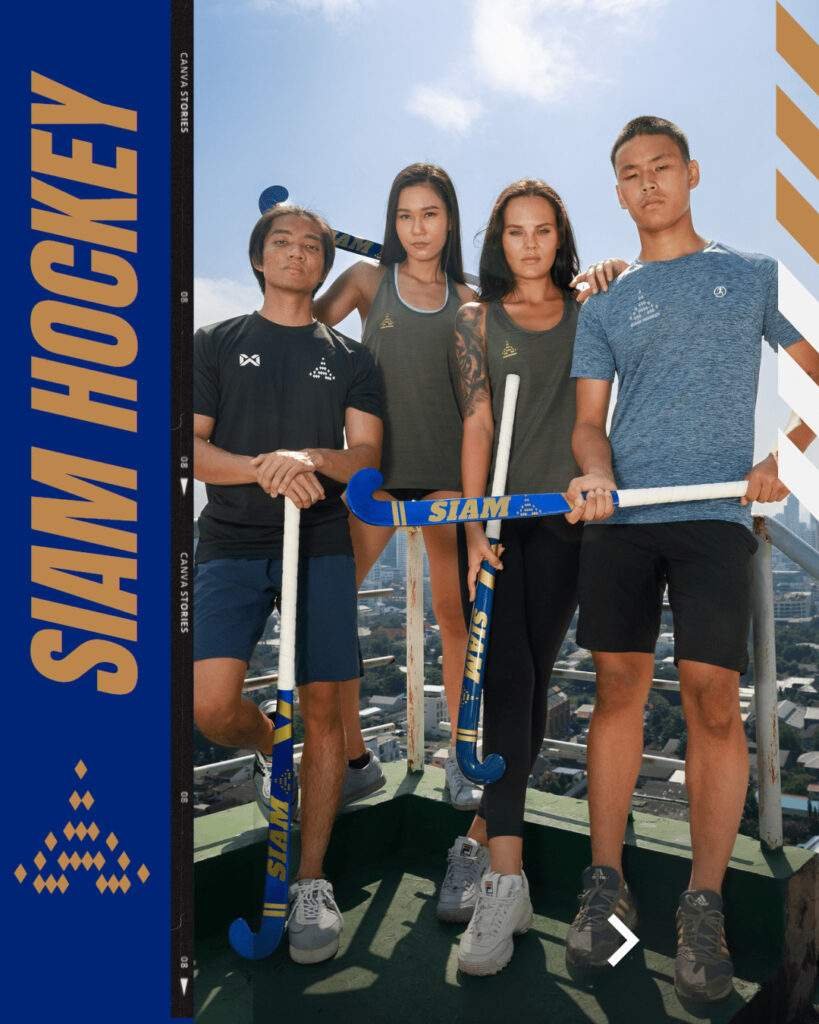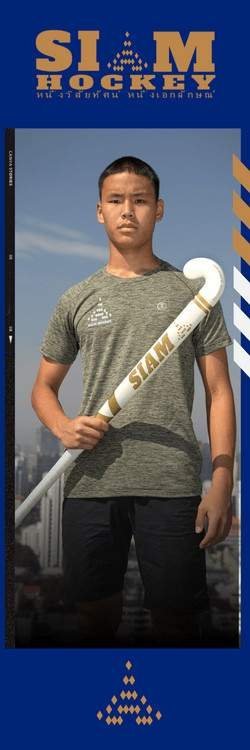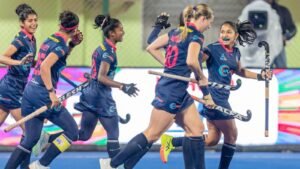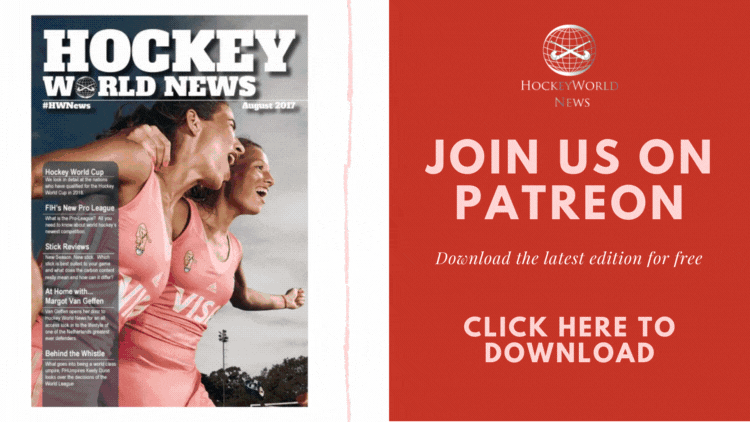In the past, Jorge Nolte (50) was at the helm of Klein Zwitserland. Since November, he has been national coach of “big” Switzerland. Although you can hardly put it that way, since the entire Swiss field hockey population has almost as many field hockey players as the club from The Hague. On Sunday, Nolte begins his first big test as national coach: the European Championship for B countries, in Poland.
‘The difference in facilities between the big league and what I find here is lícht years.’ It is Wednesday afternoon, four days before the start of the ‘EuroHockey Championship II,’ when Nolte sounds on the phone as if he still cannot believe the world he has stepped into. Fifteen minutes ago, he was still standing on the training field in the Polish city of Gniezno, where Switzerland is hunting for a stunt at the European Championship for Europe’s No. 9-16. It was his team’s first training session on Polish soil. Nolte looked around as if he had entered a parallel field hockey universe.
‘They are still putting up the dugouts. Even the video tower is far from up to standard: it would be immediately rejected at any big league club. We only had thirty balls: we brought them with us from Switzerland. The Polish balls we were promised are still missing. My physiotherapist and team manager acted as ball girls throughout training, running after every stray ball.’
No, Nolte didn’t exactly settle down in the Alpine country’s field hockey hall of fame. Switzerland, ranked No. 43 in the world, is the textbook example of a field hockey dwarf. Three times the national women’s team played on the World Cup stage: in 1972 (seventh), 1974 (ninth) and 1976 (eighth). Then the team sank so deeply into the caverns of international field hockey that for years since the turn of the century it was condemned to Europe’s third tier. A fifth-place finish at the 2024 qualifying tournament meant historic promotion to the B Nations European Championship, one step below the level at which the Dutch women have dominated for years.
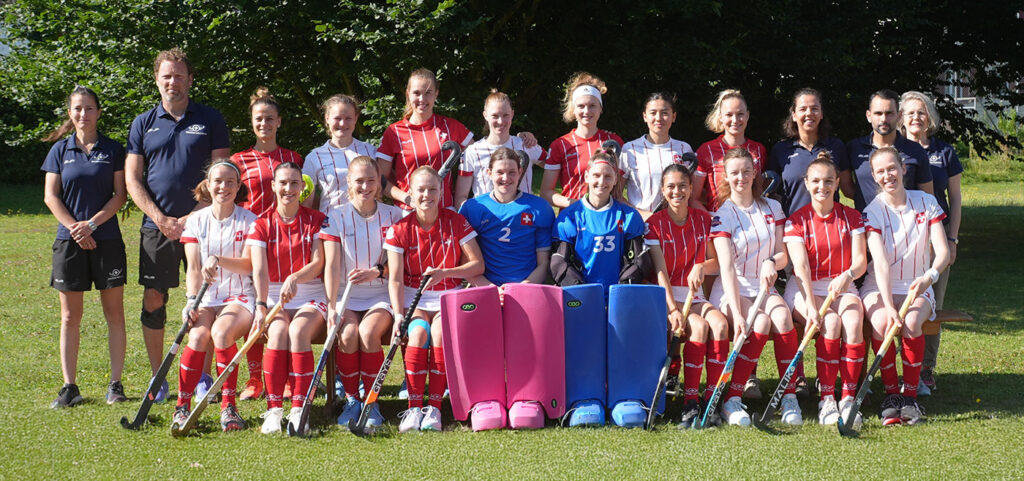
Jorge Nolte (top row, second from left) with the European Championship squad. Photo: Swiss Hockey Federation
It is my dream to become national coach of Spain. But if I want to make that step, I need international experience. Jorge Nolte
What is a coach with 11 years of major league experience at field hockey strongholds like Bloemendaal and Hurley suddenly doing in the dugout of Switzerland? ‘Normally I would never do this so quickly. I’m busy enough as it is. But a job as national coach has always had a certain appeal for me. My dream has always been to become national coach of Spain. I love the country, the food, the people.’
‘I think it would be great to move to Spain with my girlfriend and take the Spanish ladies under my wing. I’m also curious to see what I can get out of the Belgian or German women. But if I want to make that step, I need international experience. So when Switzerland came my way, I thought: why not? This is the chance to gain that experience.’
It was Jaïr Levie, his former assistant at Klein Zwitserland and now technical director of the Swiss Hockey Federation, who alerted him to the vacancy. Then the ball got rolling. Out of 35 applicants from all over the world, he was selected for a shortlist of five. That was reduced to two. In the end, he was chosen. Last November, his appointment was officially announced.
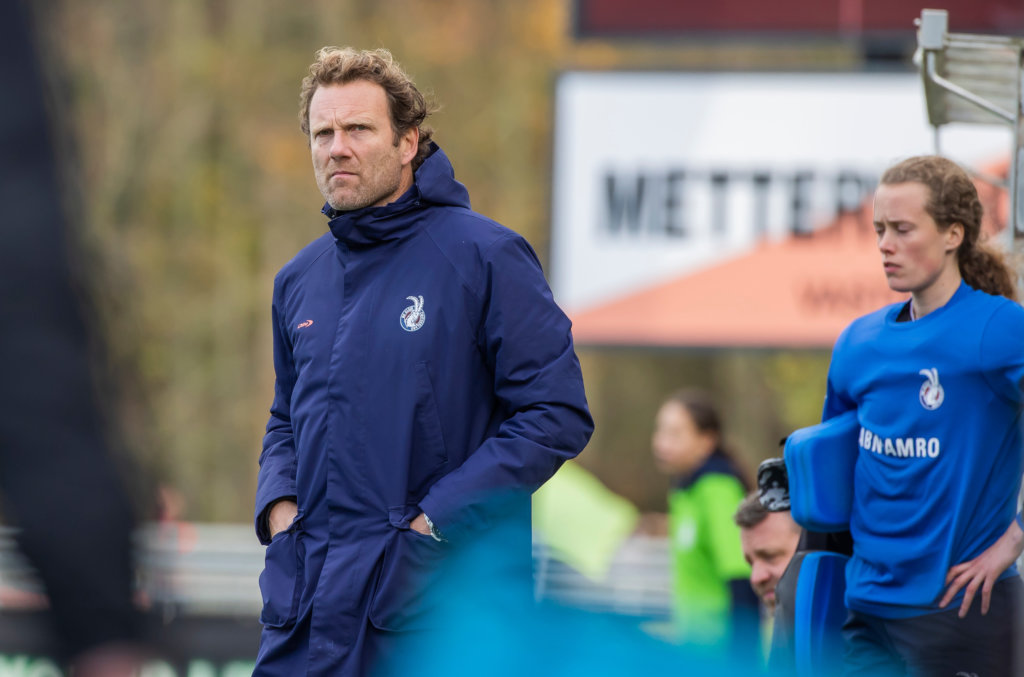
Jorge Nolte as coach of that other Switzerland: Little Switzerland. Photo: Koen Suyk
In seven months, Nolte saw his players only seven days
Full of wonder, but with respect, Nolte talks about the challenges that quickly came his way as national coach. The total number of field hockey players in all of Switzerland does not exceed 2,000, even less than what a big club like Kampong already has in terms of members. The federation office, if you can call it that at all, consists of little more than a small office in an apartment building. There is hardly any budget. To be able to play international matches, the players themselves have to pay: an annual contribution that, including flights and accommodation, quickly rises to a thousand euros.
In the first seven months after his appointment, he could forget about moulding his selection. ‘I hardly saw my players. Between my appointment in November and the kickoff of the European Championship preparations three weeks ago, we only spent a total of seven days together. At the end of February we had an introductory weekend in Lucerne. One Monday I went to group training in Switzerland. And at Pentecost they came to Leiden for four days. That was all. Only on July 4 did the actual EK preparation in Switzerland begin. But even last Tuesday, five days before the start of the tournament, we were still not complete. Due to work and studies, I was missing three more players.’
‘They are open to creative solutions’
When you hear Nolte talk about the mountains he has to move, you immediately understand why the Swiss field hockey federation chose him. He is not the type of coach to be held hostage to limitations. When he discovered that purchasing heart rate monitors was out of the question, he had his players take the weekly ‘YoYo’ test, a variant of the shuttle run, so that he could gain insight into their fitness.
He also found an answer to the problem of missing opponents for practice matches – “Not every country wants to come to Switzerland, because life here is extremely expensive. He simply organized a practice match against Switzerland Boys U18. ‘I don’t think in limitations, but in possibilities. Fortunately, the league’s five employees are very flexible. They are open to creative solutions.’
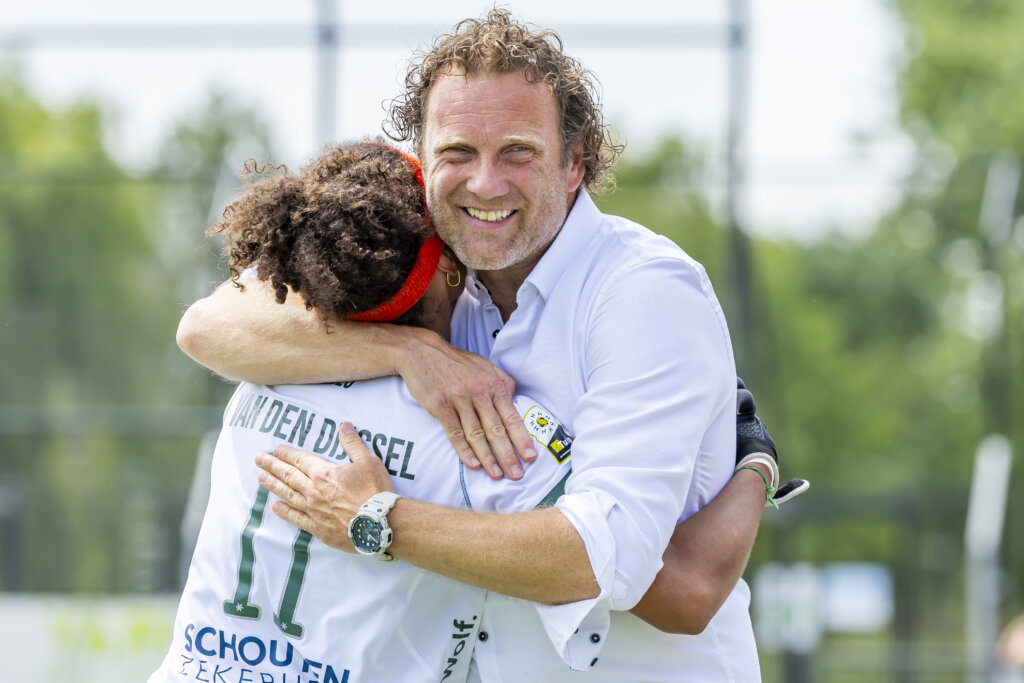
Jorge Nolte piloted Rotterdam into safe harbor in the playoffs in May. Photo: Willem Vernes
‘The sacrifices these girls make are really huge. Because of that, you know they are super motivated Jorge Nolte
Despite all the bumps in the road, Nolte is not worried about his team’s commitment. ‘The sacrifices these girls make are really huge. Because of that, you know they are super motivated. They have no summer vacation, because all their days off go into field hockey. They don’t earn anything, it just costs them money. But they really want to.
Despite a preparation of only three and a half weeks, Nolte sees plenty of opportunities for his team, especially in a pool with Wales, the Czech Republic and Lithuania. He is well versed in forging a fighting machine in such a short period of time. He did that trick recently in the Tulip big league. Just two weeks before the playoffs, he joined the Rotterdam women’s team after the sudden departure of Jordy van der Waart. Nevertheless, he guided the team into safe harbor in the decisive games against Nijmegen. He now subjects his Swiss women to the same crash course in Dutch bravado. Even though it won’t be easy as a promoter to stunt at this European Championship, he knows.
One piece of luck: relegation to the third level of Europe is not possible this time. The system is going to be drastically changed. In 2026, the EC for A countries will no longer have eight, but 12 participants. Therefore, this time the European Championship for B countries is primarily a springboard to the most favorable starting position for the qualification tournament for the European Championship for A countries. A place in the semifinals can help. Nolte: ‘If we manage that, they can drive us through Poland in a golden carriage.
by Hockey.nl

